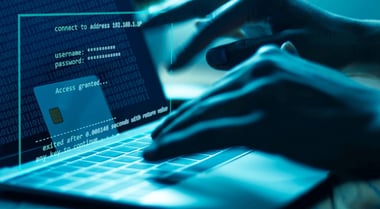On August 18, Tookitaki hosted the first webinar in their Compliant Conversations series.
The main focus of the webinar was to provide the payment service providers in the Philippines with an overview of the electronic money issuer (EMI) licence, the three-stage application process, details of the moratorium issued by the Bangko Sentral ng Pilipinas (BSP), what it means and how can one claim an exemption.
The panellists also touched upon how technology makes it easier to tackle financial crime together. We know the importance that BSP places on technology and it was great to hear from Akshara Karanjekar, Tookitaki’s AML expert, about what should be at the heart of this tech so it’s not just tech for technology’s sake. Our other two speakers included Enrique V. Dela Cruz, Jr. - Senior Partner and Juan D. De Zuniga, Jr - Special Counsel from Divina Law.
As we all know, the Philippines is one of the largest and fastest-growing economies in Southeast Asia. Its relatively young population and broad mobile network penetration have boosted the country’s internet-based businesses and made it a global hotspot for fintech companies..
While the Philippine government has favourable policies for fintech companies, COVID-19 marked the growth of the sector. The pandemic led to a surge in demand for online payment solutions. Digital payments are projected to reach $29.6 million in value this year.
However, the country’s AML/CFT system is yet to catch up with the growth, and criminals have been exploiting the country’s weaknesses to launder money. Consequently, the Philippines has been placed among the Financial Action Task Force (FATF) grey list countries. It is working hard to bolster its AML/CFT regulatory framework on par with international standards and improve its global reputation.
With regulatory compliance constantly evolving and requirements multiplying, it is important that you are never left behind. Given the context, it is critical for fintech companies seeking an EMI licence to have a formal anti-money laundering system of internal controls. Meanwhile, existing financial institutions should work towards enhancing the effectiveness and efficiency of their AML compliance programmes.
Whilst some fintech companies were able to secure an EMI license before Bangko Sentral ng Pilipinas (BSP)'s two-year moratorium on new EMI licenses, others with a strong value proposition will be looking for exemption. To provide a mechanism by which entities that offer strong value propositions may be able to participate in the digital payments and financial ecosystem, interested new non-bank EMI applicants with proposals involving new business models as well as unserved, targeted niches, and new technologies could request for an exception under the Test-and-Learn or Regulatory Sandbox Framework
As an EMI licence holder in the Philippines, you come within the purview of BSG’s periodic audits. Watch our webinar to learn about what it takes to secure and retain an EMI license in the Philippines and the importance of AML compliance as an integrated part of your business investment strategy.
Anti-Financial Crime Compliance with Tookitaki?




